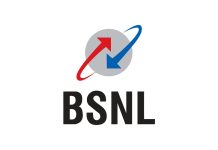
Before purchasing a secondhand car, do a vehicle history check to ensure that there have been no significant accidents, water damage, or damaged titles associated with the vehicle. A vehicle history report (VHR) is just a report that provides information about a vehicle’s ownership and maintenance history. If you are thinking about buying a secondhand car, this may be a really useful tool.
You may simply get a free car history record via the Internet, but the information provided for free is often very restricted. Even if doing so, you have a few choices, including obtaining a car history from the dealer or their website or doing your research.
In today’s article, we’ll go through How to Check the History of a Car in 6 Easy Steps and will also cover a site to buy VIN lookup.
https://toyota-vin-decoder.com
Why Is Car History Important?
The history of a car can help you decide if it’s worth buying it. If you find a car has a bad history, you may want to seek elsewhere.
The history of a car influences not just your buying choice, but it may also influence your car insurance costs. Insurers, for example, want to check whether there are any red flags such as a salvage title that would make the car more hazardous to insure.
6 Easy Steps to Check the History of a Car
1. Locate Your Vehicle’s Vehicle Identification Number (VIN)
The VIN of your vehicle can be found in many locations. The VIN is usually imprinted on a sticker and attached to different components of the car, in addition to existing in the manual and on many essential papers. Examine the driver’s side door jamb, front of the engine compartment, beneath the spare tire, and the back wheel well.
2. Examine the DVLA Records
A DVLA Check is an online check of an individual’s driving license information maintained by the Driver and Vehicle Licensing Agency (DVLA).
First, ensure that the information you’ve been provided corresponds to the vehicle information recorded by the DVLA. You may also learn about the present and former car keepers (the Owner’s History). However, you need to contact the DVLA to get anything.
You must provide them with a “reasonable cause” for seeking this information. Appropriate reasons include seeking to know who is to blame for an accident and abandoned car, even one that has been parked on private property. You’ll need to complete out a V888 form and send it in via mail.
If you’re only curious about who previously had a car you’re interested in purchasing, it may be difficult to clarify this with them in the absence of reasonable cause.’
3. Examine the Vehicle’s MOT History
A clean MOT History may indicate that the vehicle has been properly cared for by its former owners. A car with a history of MOT test failures and a large number of advisory comments may indicate a greater risk of mechanical problems and expensive expenditure in the future.
You’ll need the vehicle’s license plate.
The results are available as soon as the MOT facility has registered the test result.
To see the test site, enter the 11-digit number from the vehicle’s logbook (V5C).
4. Decode the VIN
If you haven’t been able to discover anything about your vehicle based on your VIN, or if you don’t enjoy searching the Internet, you may begin decoding your car on your own. You must locate appropriate decoding instructions in your region.
It’s important to understand the decoding method that applies to your car. Check out that whatever year your vehicle was built and its basic characteristics this way.
5. Get a Mechanical Inspection.
Vehicle history reports are very helpful, yet they may be deficient. A car history record should be complemented by an independent vehicle examination is the best way to check car history.
6. Check to Be Sure It Hasn’t Been Written Off
When seeking to purchase a secondhand car, van, or motorcycle, it is a good idea to get a car write-off check. This will alert you if the car you wish to buy has ever been in an accident yet, been written off, or may have underlying problems that will require costly repairs.
There are a variety of reasons why insurance companies write off cars, and it always implies the vehicle is unsafe to drive. As a result, before deciding to buy a car, it’s indeed essential to organize a car write-off check.
If the vehicle has been classified as a Category A or Category B write-off, it should not be driven again. You may check to see whether a car you want to purchase has been written off – this is generally a paid service, but there are several reliable companies available.
What Should You Look for in the History of a Car?
Is It Legal?
You don’t have to be concerned about whether the vehicle is legally accessible for sale if you buy from a trustworthy dealership. If you’re purchasing from a private individual or a possibly dodgy dealership, ensure that the car has a clean and legal title. The VIN report tells you whether or not a vehicle was ever declared stolen.
The VIN report tells you whether or not a vehicle was ever declared stolen.
Number of Previous Owners
The VIN report indicates how many prior owners a vehicle has had. If it’s had two or more, it may mean something is problematic with it, mechanically or anything else.
If you see this, you should obtain a bit of independent advice on whether the car is suitable for buying.
Has It Been in Any Accidents?
A car may be damaged in a variety of ways as a result of an accident. Accident-damaged cars may have significant damage that is not visible to the human eye. If a car has been in a collision, ensure that it is safe to drive and that all problems have been resolved.
Similarly, vehicles that have been in accidents are less valuable than those that have not. As a result, an accident may have an impact on both the buy price and the resale value. If you purchase a vehicle that has been in an accident, you may be able to negotiate a cheaper price. You will, however, have to resell for even less money.
Has It Been Addressed?
Many VIN reports include a vehicle’s maintenance history. You can check when and how often it gets regular maintenance, like changing oil or tire rotations. If you’re purchasing a secondhand vehicle, be sure the previous owners took good care of it. Otherwise, you may find yourself with unexpectedly high repair costs.
Otherwise, you may find yourself with unexpectedly high repair costs.
Conclusion
Whenever you invest hundreds of dollars in a secondhand car, just a little bit of research may go a long way. The VIN is an excellent beginning point, combined with an independent car examination by a mechanic.
Although it’s important to study a vehicle worth buying, you would like to do your research just on insurance you can obtain for the car. Since you require insurance whenever you drive off from the dealership, you’ll want to evaluate insurance choices until you have the keys in hand.









